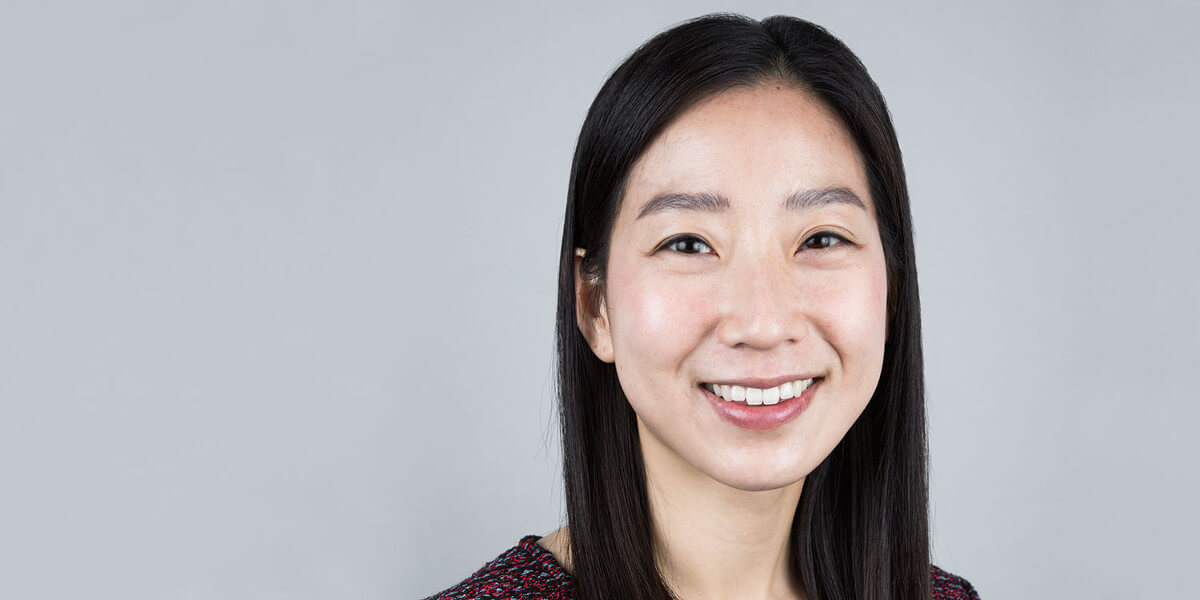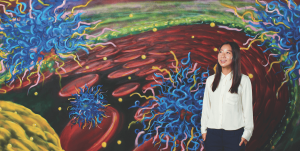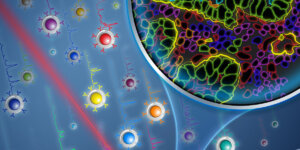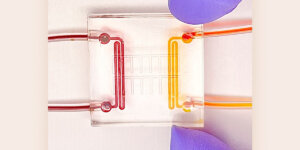
Gabilan Assistant Professor Eun Ji Chung of the USC Viterbi Department of Biomedical Engineering Photo courtesy of Viterbi Staff
Regeneration is a concept that calls to mind a sci-fi film scene wherein a character magically grows back a missing limb. Though futuristic in many media depictions, tissue regeneration can actually happen in present times, thanks to biomedical engineering.
Using biomaterial scaffolds, Eun Ji Chung researches how stem cells can be used to turn into other cells for urethral tissue repair and regeneration, a method that could help patients who suffer from urinary incontinence.
In effect, biomaterials are essentially natural or synthetic materials suitable for introduction into living tissue for therapeutic reasons.
The problem: urinary incontinence is caused by the loss or weakened control of the urinary sphincter, a muscle that controls the release of urine from the bladder. It affects millions of Americans daily, especially women, and women who have given birth are even more prone.
Chung, a Gabilan Assistant Professor at USC Viterbi, hopes to one day provide an injectable system that can provide both short- and long-term solutions by activating natural ways to restore urethral tissue form and function.
“The goal is to develop biocompatible and bioactive hydrogels that can release growth factors and stimulate muscle repair using adipocytes, or fat stem cells, for the urethra,” Chung said.
Using hydrogels, three-dimensional polymer-based scaffolds that can absorb large amounts of water or biological fluids, are ideal to serve as a biomaterial scaffold because they resemble living tissue so closely.
In Chung’s work, the hydrogels bind and release the growth factors which can stimulate muscle repair using fat stem cells. Her hope is that the fat stem cells will differentiate into smooth muscle cells to rebuild the urethral muscle tissue and lessen or prevent incontinence.
In collaboration with Dr. Larissa Rodriguez, vice chair of Academics at the USC Institute of Urology and Dr. Rong Zhang, a research assistant professor in the Department of Urology at the USC Keck School of Medicine, Chung and her lab will test the therapeutic potential of the hydrogels in rats with urinary incontinence.
A project in progress, the animal model is a key step to the overall goal of developing biomaterials for clinical applications.
For her research proposal, Chung received a 2016 Eli and Edythe Broad Innovation Award for this year’s theme “Endogenous Mechanisms of Tissue Repair.” The one-year award includes $100,000 of direct research support, plus a $20,000 stipend to cover services in relevant research facilities at the Eli and Edythe Broad Center for Regenerative Medicine and Stem Cell Research at USC.
About the honor, Chung said: “The Broad Innovation Award is my first award obtained since arriving at USC in August 2016. The award not only provides seed funding to initiate an important area of research, but also helps support a fruitful collaboration and preliminary data needed for external funding.”
Published on February 1st, 2017
Last updated on May 2nd, 2022











